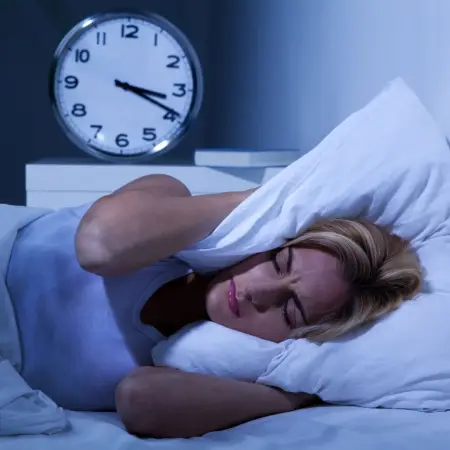Insomnia treatment in Borivali – Dr. Nishtha Dalwani
“Unlock the door to restful nights with a personalized key of sleep hygiene, therapy, and mindful relaxation.”
Insomnia
Insomnia is a sleep disorder characterized by difficulty falling asleep, staying asleep, or experiencing non-restorative sleep despite having the opportunity to sleep. It can lead to daytime fatigue, irritability, difficulty concentrating, and impaired performance at work or school. Insomnia may be acute, lasting for a short period, or chronic, lasting for several weeks or longer. Treatment typically involves addressing underlying causes, implementing good sleep hygiene practices, and, in some cases, medication or therapy to improve sleep quality.
Who is commonly affected by insomnia?
- Age: Insomnia becomes more common with age, with older adults often experiencing changes in sleep patterns and increased prevalence of medical conditions that can interfere with sleep.
- Gender: Women are more likely to experience insomnia than men, possibly due to hormonal fluctuations, pregnancy, or menopause-related symptoms.
- Medical conditions: Individuals with chronic medical conditions, such as chronic pain, arthritis, asthma, or gastrointestinal disorders, may experience insomnia as a secondary symptom.
- Mental health disorders: Insomnia is commonly associated with mental health conditions such as anxiety disorders, depression, bipolar disorder, or post-traumatic stress disorder (PTSD).
- Stress and anxiety: High levels of stress, anxiety, or worry can disrupt sleep patterns and contribute to the development of insomnia.
- Lifestyle factors: Poor sleep hygiene practices, irregular sleep schedules, excessive caffeine or alcohol consumption, and shift work can all increase the risk of insomnia.
- Medications: Certain medications, such as stimulants, corticosteroids, antidepressants, or medications that affect the central nervous system, may interfere with sleep and contribute to insomnia.
- Environmental factors: Noise, light, temperature, and other environmental factors can impact sleep quality and contribute to insomnia, particularly for individuals who are sensitive to their surroundings.
What are the signs and symptoms of insomnia?
Signs of insomnia:
- Difficulty falling asleep at night
- Waking up frequently during the night
- Difficulty returning to sleep after waking up
- Waking up too early in the morning
- Non-restorative sleep, feeling unrefreshed upon waking
Symptoms of insomnia:
- Daytime sleepiness or fatigue
- Irritability, mood changes, or difficulty concentrating
- Tension headaches or gastrointestinal symptoms due to lack of sleep
- Impaired performance at work, school, or in daily activities
- Increased accidents or errors due to lack of alertness or concentration.
What are the treatment options for insomnia?
Sleep hygiene practices: Establishing a consistent sleep schedule, creating a relaxing bedtime routine, and optimizing the sleep environment to promote better sleep.
Cognitive-behavioral therapy for insomnia (CBT-I): A structured therapy approach that helps individuals identify and change negative thoughts and behaviors related to sleep.
Medications: Short-term use of sleep medications, such as over-the-counter antihistamines or prescription sleep aids, may be recommended in certain cases.
Addressing underlying conditions: Treating any underlying medical conditions or addressing lifestyle factors that may contribute to insomnia, such as stress, anxiety, depression, or substance use.
Relaxation techniques: Practicing relaxation techniques, such as deep breathing exercises, progressive muscle relaxation, or meditation, to reduce arousal and promote better sleep.
Sleep restriction therapy: Limiting the time spent in bed to match the individual’s actual sleep duration, which can help consolidate sleep and improve sleep efficiency.
Light therapy: Using exposure to bright light to regulate the sleep-wake cycle, particularly for individuals with circadian rhythm disorders or seasonal affective disorder.
Book an appointment with Dr. Nishtha Dalwani, a leading psychiatrist and psychotherapist in Mumbai, known for her exceptional expertise in mental health. Experience compassionate care and tailored treatment plans as you embark on your journey towards healing and well-being. Schedule your consultation today to receive the support you deserve.

